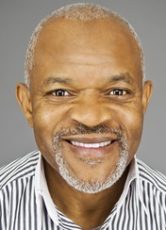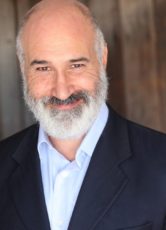
As actors, you put yourselves out there with every audition. That takes real courage! When you project confidence during those moments, it not only helps you feel more positive, but it also signals to casting executives that you’re competent and likely to adapt well on set. We know what it’s like to be scrutinized by decision-makers, and boosting your confidence from start to finish can make a real difference.
Enter former FBI agent and body language expert Joe Navarro. In a WIRED YouTube video, he explains how to use body language to project confidence, breaking down specific giveaways that indicate an individual is comfortable in their own skin. “Supremely confident people tend to feel comfortable in the room as soon as they walk in. They don’t hesitate to look around; their gestures are smooth, but they’re cultivated. And that has to do with confidence,” he says. Navarro thinks everyone can boost their nonverbal cues to appear more self-assured.
So, what are some of his specific tips to help you shine? Here’s what he shares. And, like anything else, the more you practice these, the easier they’ll be to master.
Insights From Joe Navarro
- Always thoroughly know your material before auditions to naturally boost your confidence and demonstrate expertise.
- Use smooth, deliberate body language like steady eye contact, relaxed gestures, and purposeful walking to project self-assurance.
- Slow down your movements and speech, pausing strategically to convey calm control and draw the audience in.
Want to land your next great acting role? Sign up or log in to Casting Frontier and start auditioning today!
Traits of Confident People
How do you spot confidence in others? It can be tough to put your finger on exactly what makes someone so convincing. Navarro says the magic ingredients include: “Our posture, the way we present, how we look, where’s our chin? Where are the eyes looking and gazing? Our gestures are loose, but they’re smoother. As we walk about, we walk as though we are on a mission—I’m walking to shake your hand or I’m walking out to a podium or I’m walking to where I’m going to sit.”
Know the Material
First things first: confident body language won’t get you far if you haven’t done your homework before the audition, shoot, or play. You’ve got to bring your actorly knowledge and expertise into the room. “If you want to be confident, know your material, know the information, hone that skill, work at it. Really master these things and yourself. And that’s how you’ll come across as confident, no matter what your station in life is,” Navarro says.
Confidence Can Be Quiet
Confidence doesn’t require a huge amount of energy, muscle flexing, a puffed-up chest, or loud talk. “Confidence can be very quiet,” Navarro emphasizes. For example, Jane Goodall, who studied and lived among the chimpanzees, is a highly confident person, even though she has a gentle and mild manner. Regardless of personal style, Navarro explains, “[Confident individuals] sort of have this command of themselves, and in doing so, that command radiates outward.”
Take Your Time
When someone’s battling self-doubt, a nervous urgency often comes with it. That energy can lead to quick, jerky movements, more fidgeting, rapid speech with a higher pitch, and trouble concentrating. So, Navarro encourages you to slow down and lower your voice. “I’m going to take my time to walk out. I’m going to take my time to answer your question. I will answer it in the pace, manner, and tone that I choose,” he says. That can even include pausing at strategic points in your sentences, which has the power to draw people in closer. For example, Winston Churchill used to read from notes that included spaces of various lengths indicating how long he was to pause during his speeches to make the most substantial impact.
Eye Contact
When people feel confident, they readily make eye contact with others. When self-doubt begins to creep in, people are less likely to make eye contact or look around at their surroundings.
Mirroring Confidence
Navarro emphasizes that people aren’t born confident. “We can become confident with help from our parents who encourage us. We can become confident through our achievements. We can become confident by going beyond our boundaries. But confidence is something we can grow, we can nurture,” he says. We learn the voice and gestures of confident people through socialization—maybe it’s your school principal or a famous singer who shows those traits. He encourages us to pick someone with a commanding presence and mirror their gestures, way of speaking, and vocabulary. “This is a shortcut,” Navarro explains. “That doesn’t mean it changes me completely. It just means this is what is required of me, and this is what I want to achieve at this moment in time.”
Leaning into a Wall
To feel ready to walk on stage with complete confidence, Navarro shares one of his warm-ups: “I find a good solid wall, and I will just lean into it like I’m holding this wall up, pressing against it just as if I were doing a push-up.” He keeps his hands wider than shoulder width apart. Navarro insists this practice releases muscular tension. “And because I’m doing it very wide, it makes me feel more powerful.” Once he’s up in front of the group, only then does he look at the audience. “And then I just take a second to get myself together” before beginning with his presentation.
Other Behaviors to Modify
Avoid pointing. Pointing is actually one of the “most hated signs around the world.” Instead, gesturing toward the intended direction with an open palm is much better received. To say “no” like you really mean it, Navarro suggests saying it with a lower tone while gesturing with your hand with your fingers spread wider apart. “The more confident you became, the wider your fingers were spreading.” Finally, avoid uptalking—that’s ending sentences with a higher note. It’s not ideal in professional settings.
Confidence is key for actors facing auditions and on set. Former FBI agent Joe Navarro breaks down how body language can help you project calm assurance, even when you’re nervous. By practicing a few simple habits, you can boost your presence and connect more effectively with casting executives.
- Know your material inside and out to naturally build confidence.
- Use smooth, purposeful gestures and maintain steady eye contact.
- Slow your movements and speech to convey control and calm.
- Mirror confident people’s body language to develop your own presence.
- Avoid negative habits like pointing and uptalking to appear more professional.
You may also like:




